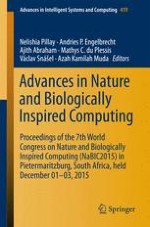2016 | OriginalPaper | Buchkapitel
Detection of Zero Day Exploits Using Real-Time Social Media Streams
verfasst von : Dennis Kergl, Robert Roedler, Gabi Dreo Rodosek
Erschienen in: Advances in Nature and Biologically Inspired Computing
Aktivieren Sie unsere intelligente Suche, um passende Fachinhalte oder Patente zu finden.
Wählen Sie Textabschnitte aus um mit Künstlicher Intelligenz passenden Patente zu finden. powered by
Markieren Sie Textabschnitte, um KI-gestützt weitere passende Inhalte zu finden. powered by
